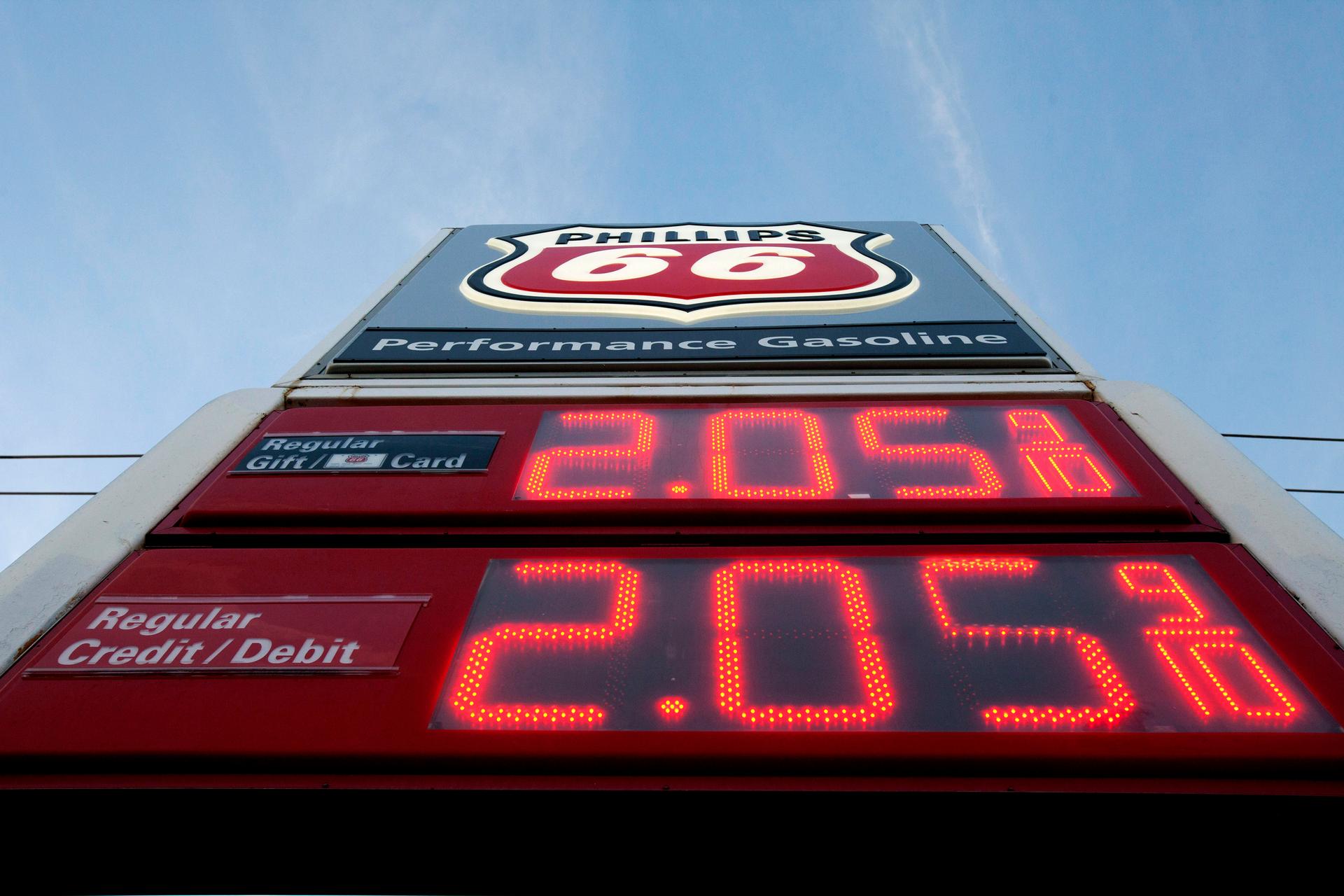While the drop in oil prices is a short term boom, there are reasons for concern in the US economy
A gas price sign is seen at a Phillips 66 station on Westheimer Road in Houston, Texas, on December 16, 2014.
Since June, the price of oil has fallen by nearly 50 percent, with costs plummeting to just $60 a barrel last week — and even lower this week.
The oil drop is an immediate stimulus to the broader economy, but the news isn’t all good. Dan Dicker, author of "Oil's Endless Bid," says there's a real possibility the US is becoming a "petro state" — with all the benefits, and risks, that brings along with it.
“I believe that oil has become a major part of this economy,” Dicker says. “And we may be more like Russia than we’d like to think we are.”
Over the past five years, Dicker estimates the United States has added about 5.5 million jobs, with at least 1.5 million coming from the oil and gas industries. America now pumps about nine million barrels a day, up from four to five million barrels a few years ago.
“There’s no doubt that the oil industry and oil companies in general took $100 a barrel oil very much for granted,” he says. “What’s clear is that shale oil does not work at under $60 a barrel in many, many places in the United States. That won’t be seen for months because many oil companies undertake projects that take months and sometimes years to come to fruition.”
Dicker says many US oil companies have stopped drilling new rigs and stopped looking for fresh oil — a move that is pushing production down.
“Despite the fact that demand keeps going up globally, we’re going to see — if prices stay down for an extended period time, and I think they will — a tremendous drop in the production here in the United States and elsewhere,” Dicker says.
When looking globally, many believe Saudi Arabia is refusing to prop up oil prices because it wants to force American producers out of the market.
“It’s one of many things that have contributed to this colossal drop in the price of oil,” Dicker says. “I think the Saudis have several reasons why they might want to see oil prices drop here. Some of them are geopolitical, and some of them have to do with the viability of OPEC in general.”
In recent months, price declines have shaken the Organization of Petroleum Exporting Countries, which last held a meeting in late November. As previously reported, Saudi Arabia has been viewed as the OPEC member most likely to cut petroleum production. Still, the oil-rich nation does not want to shoulder the burden alone.
“They tried very hard in the weeks and months leading up to the OPEC meeting to try and find some consensus for a production drop,” Dicker says. “They could not find it either inside the cartel or outside of it. … They decided to let these low prices percolate inside the market and see how many of the weak players they could force out — and now it seems clear that many are going to be forced.”
Dicker says there are also concerns that some smaller oil companies will default on their debt obligations because of the problems with the market.
“What we’ve had over the last three or four years is Fed-inspired interest rates that are very low across the board,” he says. “Low interest rates have inspired a lot of investment at very, very good rates for otherwise very risky endeavors. As these oil and gas companies become less viable, you have the makings of a credit crisis that’s not so un-akin to what we had in 2008.”
This story first aired as an interview on The Takeaway, a public radio program that invites you to be part of the American conversation.
